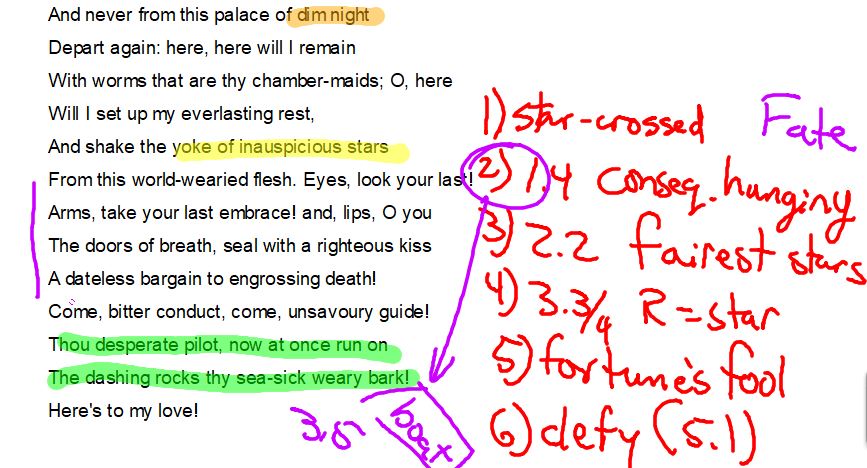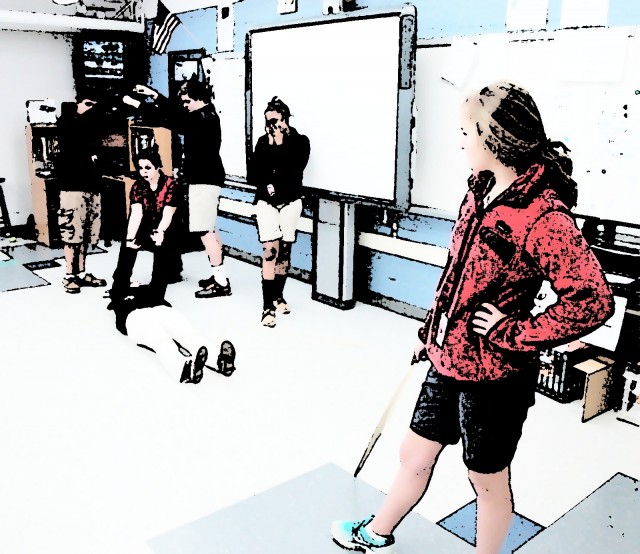We looked at the final soliloquy in the play, when Romeo loses all sense of rationality and makes a horrible decision based primarily on emotion. We examined how Shakespeare develops this idea within the text by
- extensive use of “O”;
- chaotic changes in the soliloquy’s subject;
- references to a loss of control;
- and other techniques.
Students first presented their claims about the text, many of which led naturally into the observations I wanted students to have later in the lesson.

They were doing some pre-teaching for me, in other words.


It was a good day to be a teacher.

